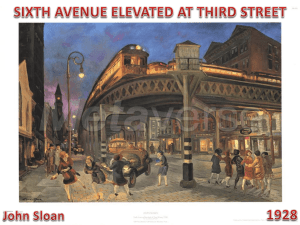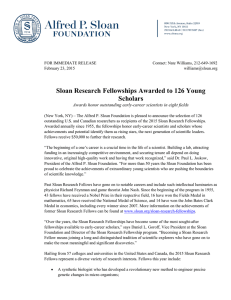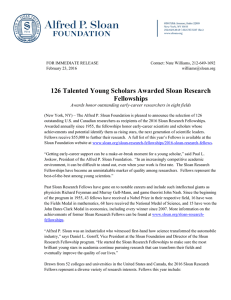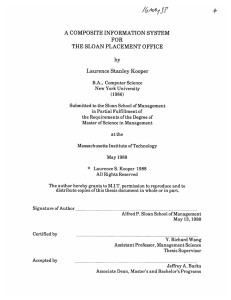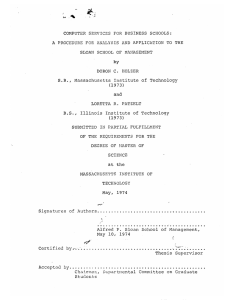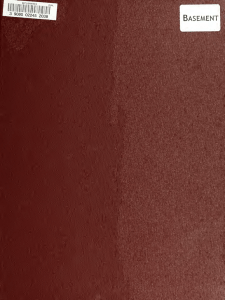UIC-CS0.5-SIGCSE06
advertisement
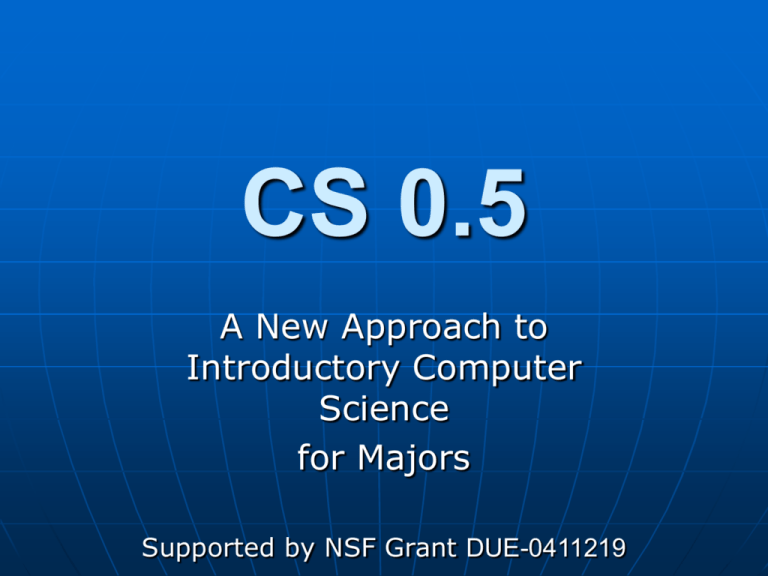
CS 0.5 A New Approach to Introductory Computer Science for Majors Supported by NSF Grant DUE-0411219 CS 0.5 Participants Robert H. Sloan, University of Illinois at Chicago Patrick Troy, University of Illinois at Chicago Email: sloan|troy at host uic.edu Problems in Computer Science High Attrition Rate at Freshman and Sophomore level • 19% National Average • As high as 66% • 30%-40% at UIC • Worse for Female Students Not attracting students into the Program Reasons for High Attrition Introductory CS often fail to engage students Class are described as • too boring • overly technical • lack creativity Reasons for High Attrition Students have wide variations in background and experiences • Slower pace bores those with Greater Experience. Students lose interest! • Faster pace loses those with Lesser Experience. Students feel incompetent! Our Solution Divide and Instruct Divide Incoming students into two groups • Those with greater experience • Those with lesser experience Use placement exam to determine experience level Placement Exam Focus on Semantics not Syntax • Language Independent Write code showing some minimal knowledge of: • Variables • Arrays • If Statements • Loops • Basic Function Calls Division of Students Students not taking or not passing the placement exam follow normal route of CS 0.5 course followed by an aggressive CS 1 course • CS 0.5 is not “remedial” but “normal” Students passing placement exam are • advanced into the aggressive CS 1 course • receive credit for our CS 0.5 course • “Free” credit motivates the students Curriculum of CS 0.5 Based on Mark Guzdial’s Media Computation course from GA Tech Engage them with Pictures, Sound and Movie manipulation Prepare them for future CS Course Started in Spring 2005 Making Emma a redhead def turnRed(): brown = makeColor(48,20,17) file = "/Users/sloan/MediaSources/emma.jpg" picture = makePicture(file) for px in getPixels(picture): color = getColor(px) if distance(color,brown) < 25.0: redness = getRed(px)*1.5 setRed(px,redness) show(picture) return(picture) Original Posterizing: Reducing range of colors How do we compare algorithms? There’s more than one way to sample. • How do we compare algorithms to say that one is faster than another? Computer scientists use something called BigO notation • It’s the order of magnitude of the algorithm • The goal is to describe what happens to the running time of the algorithm as the size of the input grows Big-O notation tries to ignore differences between languages, even between compiled vs. interpreted, and focus on the number of steps to be executed. Preliminary Results Our CS 0.5 Enrollment Success Rate Old: Fall 02 61 74.8% Old: Spring 03 38 76.7% Old: Fall 03 51 68.6% Old: Spring 04 22 82.9% Old: Fall 04 15 93.3% Average “Old” 37 75.9% New: Spring 05 18 94.4% Absolute latest results OLD Average Success Rate (ABC) 76% NEW Average Success Rate (ABC); 2 semesters of data 91% A bit about the course Tweaked version of Guzdial Media Comp course for Georgia Tech non-majors Mildly slower pace A bit more drill on easiest programming fundamentals Our tweaked version is available on our website, of course: http://wiki.cs.uic.edu:8080/CS101

